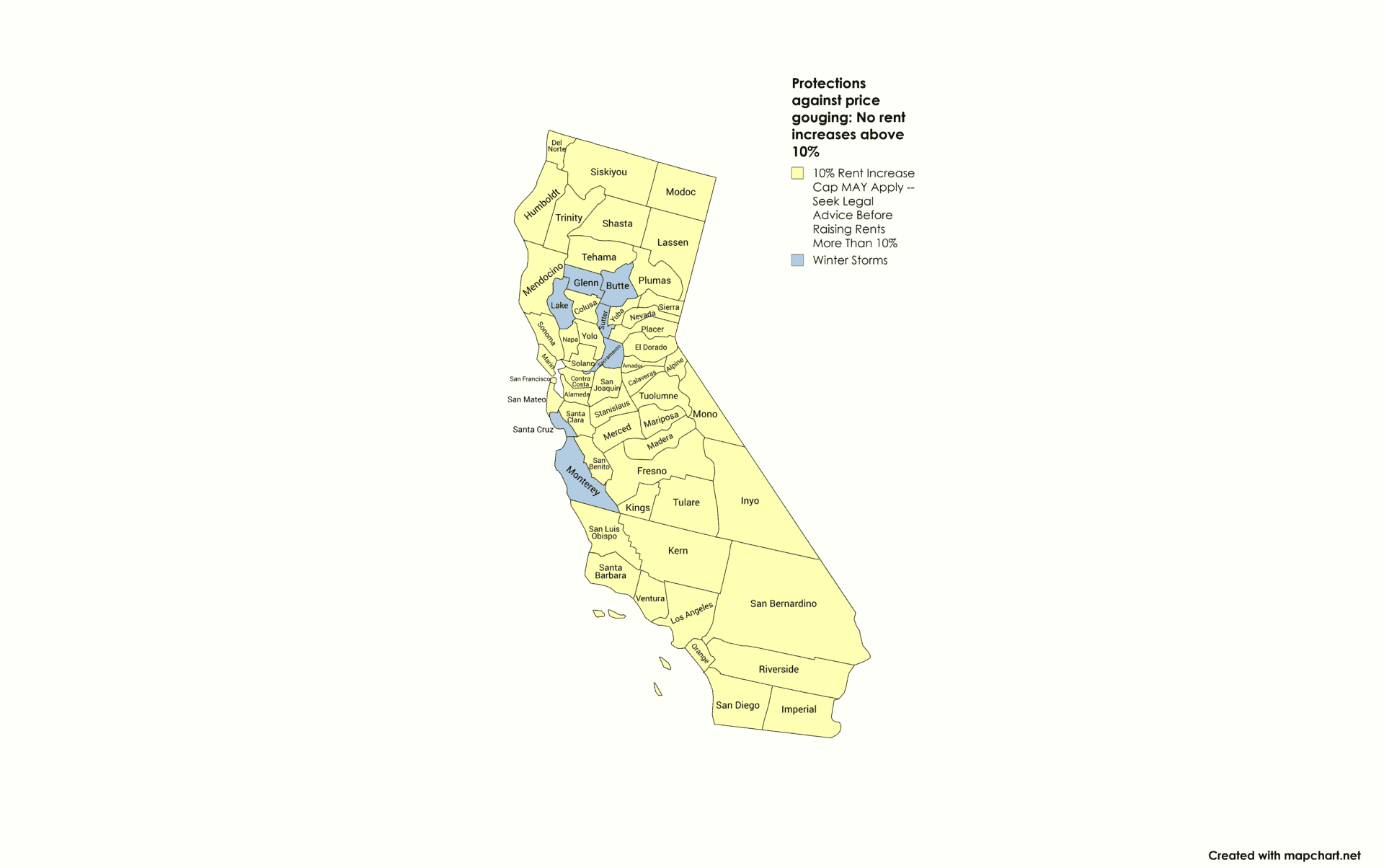In recent days, Gov. Newsom proclaimed a state of emergency for a total of 11 California counties to support the ongoing recovery from the early February winter storms that caused significant damage to highways and roadways and widespread damage to public property.
Newsom’s proclamation, issued Friday, March 22, names the following counties: Alameda, Butte, Glenn, Lake, Mendocino, Monterey, Sacramento, San Francisco, Santa Cruz, Sonoma, and Sutter.
The governor’s emergency proclamation triggers Penal Code Section 396, the state’s anti-price gouging law. This law makes it illegal to increase the price of many consumer goods and services, including that of rental housing, by more than 10% above pre-emergency levels. The limits on rent increases apply to existing tenants and to rent increases at unit turnover.
Significantly, the proclamation issued on March 22nd suspends the price-gouging restrictions of Penal Code Section 396 for four out of the eleven counties covered by the proclamation. To wit, Alameda, Mendocino, San Francisco, and Sonoma counties are exempt from the anti-price gouging limitations under Penal Code 396.
The latest state of emergency and protections against price gouging are slated to expire April 21, 2024. However, the declaration may be extended if necessary.
Violations of the statewide anti-price-gouging law can result in severe penalties, including a year in county jail, fines up to $10,000, or both, in addition to potential civil penalties. Local ordinances might impose further penalties.
The California Apartment Association reminds members that it does not track emergency declarations by local officials. For local emergencies declared by cities and counties, landlords should consult with the relevant local authorities regarding the implications of Penal Code Section 396.


